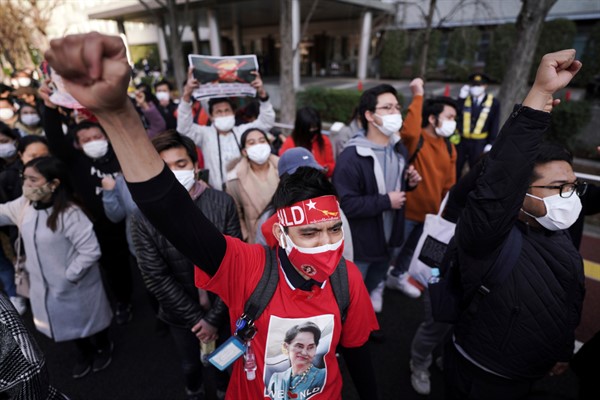The military’s seizure of power in Myanmar this week unfolded in the squalid manner of coups everywhere. Senior politicians, including the country’s popular de-facto leader, Aung San Suu Kyi, were arrested along with civil society leaders in the pre-dawn hours of Feb. 1, just before the newly elected parliament was set to convene its first session. Meanwhile, tanks and soldiers took up positions at key intersections of major population centers, including the capital, Naypyidaw. The nation, and the world, were left stunned.
A coup had been telegraphed and feared, yet deemed improbable by many close observers of Myanmar’s vexed transition to democracy, which has proceeded in fits and starts since the end of military rule in 2011. The ruling National League for Democracy, or NLD, scored an overwhelming victory in last November’s general election, taking more than 80 percent of the parliamentary seats that were up for grabs. Those results appeared to send a clear message to the country’s powerful armed forces, known as the Tatmadaw, that a trajectory of reform and democratic consolidation had sweeping social support. Instead, the generals cried foul with allegations of voter fraud.
Even before taking a beating at the polls, the Tatmadaw’s commander-in-chief, Gen. Min Aung Hlaing, was spoiling for a fight. He and other top military brass chafed at the NLD’s abortive efforts in early 2020 to enact changes to the military-drafted 2008 constitution that would have weakened the Tatmadaw’s political control.

